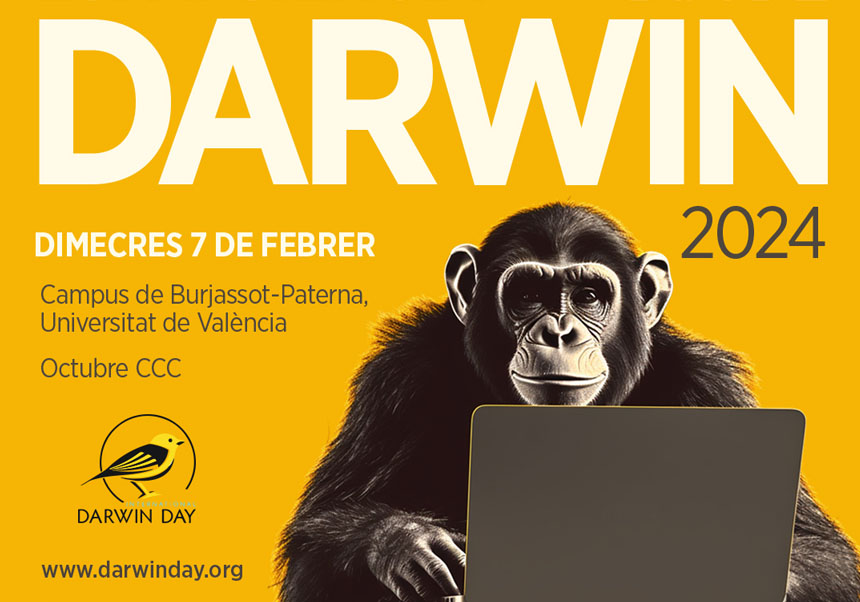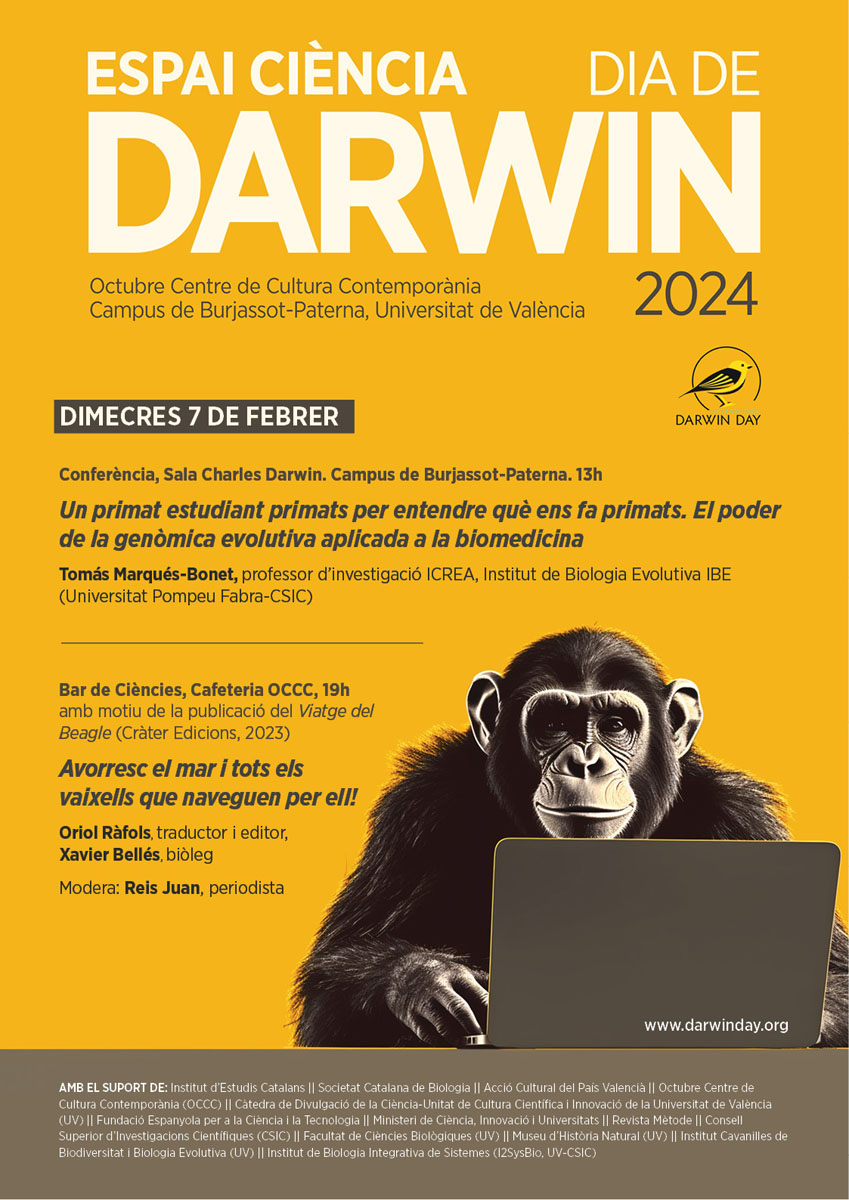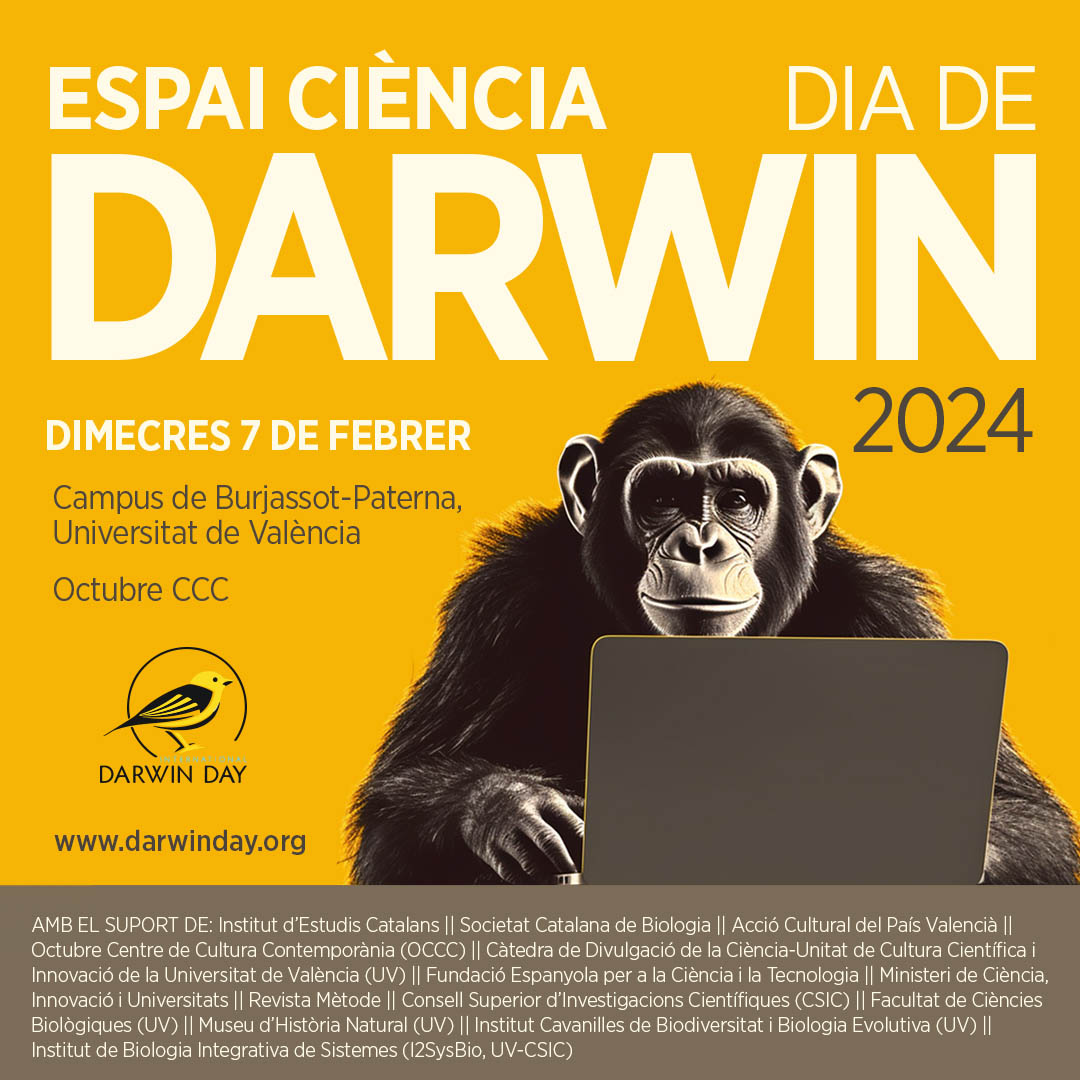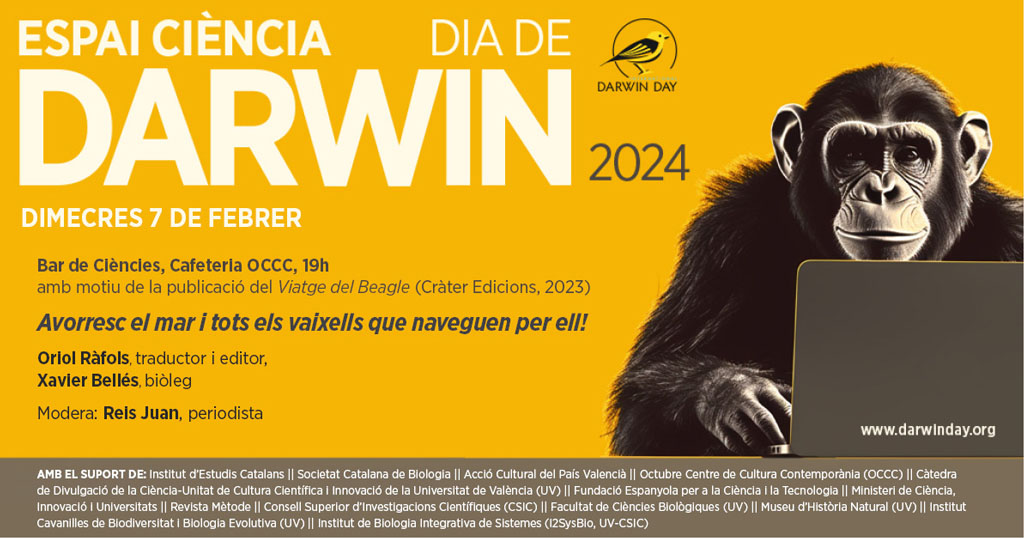Evolutionary genomics applied to biomedicine and the scientific voyage of the Beagle, lectures for Darwin Day in Valencia
- Scientific Culture and Innovation Unit
- February 5th, 2024

The University of Valencia (UV) and the Science Space of the Octubre Centre de Cultura Contemporània (OCCC) are celebrating Darwin Day this Wednesday, February 7, with two lectures. The first one, at 1 p.m., will be given by Tomás Marqués-Bonet, ICREA research professor and researcher at the Institute of Evolutionary Biology (Pompeu Fabra University and CSIC). His intervention, “Un primat estudiant primats per entendre què ens fa primats. El poder de la genòmica evolutiva aplicada a la biomedicina” (‘A primate studying primates to understand what makes us primates. The power of evolutionary genomics applied to biomedicine’), will take place in the Charles Darwin room of the Burjassot-Paterna campus (University of Valencia).
In the afternoon, at 7 p.m., at the OCCC, a science bar will discuss the publication El viaje del Beagle (Edicions del Cráter, 2023), in which Oriol Ràfols, translator and publisher, and biologist Xavier Bellés will participate, moderated by the journalist Reis Juan. The gathering will discuss the scientific voyage carried out on board the ship Beagle by the English naturalist Charles Darwin, who for four years, between 1831 and 1836, explored South America, the Pacific Islands of Oceania and Africa. This work was key to later formulating the Theory of Evolution.
Darwin Day is celebrated annually on February 12 on the occasion of the birth of the English naturalist Charles Darwin (1809-1882), with dissemination and commemoration activities held throughout the world and to reflect and act on the advancement of science, and spread his scientific legacy on evolution.
This activity has the support of the following institutions: Institut d’Estudis Catalans, Catalan Society of Biology, Acció Cultural del País VAlencià, Octubre Centre de Cultura Contemporània (OCCC) and Chair of Dissemination of Science-Scientific Culture and Innovation Unit of the University of Valencia. Also, Spanish Foundation for Science and Technology (FECyT), Ministry of Science, Innovation and Universities, Mètode magazine, Spanish National research Council (CSIC), Faculty of Biological Sciences (UV), Museum of Natural History (UV), Cavanilles Institute of Biodiversity and Evolutionary Biology (UV), and Institute of Integrative Systems Biology (I2SysBio, UV-CSIC).





















